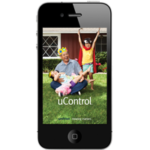Finding the right cell phone when you have hearing loss can be tricky. Getting the right device with the right plan isn’t always straightforward. Here are some questions from Janice Schactery’s article “How to Buy a Cell Phone When You Have Hearing Loss” originally published in Volta Voices magazine. (Shared with permission.) 1. What do the ratings mean? Effective September 16, 2006, the FCC mandated that cell phone providers must offer at least two handset models that have a minimum M3/T3 rating. The M rating (M3 or 4) represents microphone interference potential to a hearing aid from the cell phone and the T rating (T3 or 4) represents the telecoil coupling capability of the cell phone. The higher the rating, the more likely the cell phone will be compatible with a hearing aid. The minimum number of compliant handset models will soon be increas- ing. Service providers will have to […]
Category Archives: About Hearing Loss
Hearing Aids Improve Quality of Life
article by Sergei Kochkin, Ph.D. – Better Hearing Institute, Washington, DC The number one reason why people purchase their first hearing aids is they recognize their hearing has worsened. The second reason is pressure from family members who are negatively impacted by the individuals hearing loss. As you know by now, hearing loss occurs gradually. Hearing aids improve quality of life yet often by the time you recognize a need for hearing aids, your quality of life may have deteriorated unnecessarily. The average age of first-time hearing aid wearers is close to 70 years of age, despite the fact that the majority (65 percent) of people with hearing loss are below the age of 65; and nearly half of all people with hearing loss are below the age of 55. For the vast majority of individuals who have decided to wait to purchase hearing aids (78 percent of all people who […]
What To Expect at Your First Audiology Visit
Audiologists and ENTs rely on a set of standard tests and equipment for diagnosing hearing loss and balance issues. Atypical among modern medical disciplines, little has changed in recent years technologically, aside from the equipment being connected to PCs and networked, instead of manually transcribing the results. To help smoothly navigate you or your child’s first visit, we spoke with Annie Cardello, an audiologist with Otolayrngology Specialists of North Texas, about the tests and tools you can expect. Inside The Booth Routine testing of older children and adults takes place in a sound booth with pure tone testing, which consists of playing tones at different intensities to see how well you hear each frequency and if you are in normal range or not. Audiologists test the acoustic reflex to see if there is a nice pull of the muscle behind the ear drum in response to loud sounds using equipment called an admittance unit, which tests the integrity of the auditory nerve. Tests […]
Do You Think You Have a Hearing Loss?
Do You Think You Have a Hearing Loss? The following is an excerpt from the fact sheet from the Hearing Loss Association of America. Are you afraid to know for sure? If you think you might have a hearing loss you are not alone. About one in five persons in the United States has a hearing loss. If you have suspected for a while, but just haven’t got around to doing anything about it, that is not unusual. On average it takes people seven years from the time they think they might have a hearing loss to the time they seek treatment. How can I tell if I have a hearing loss? If you answer yes to some of the following questions, you might have a hearing loss. Do you… often ask people to repeat what they say? have trouble hearing in groups? think others mumble? fail to hear someone talking from […]


